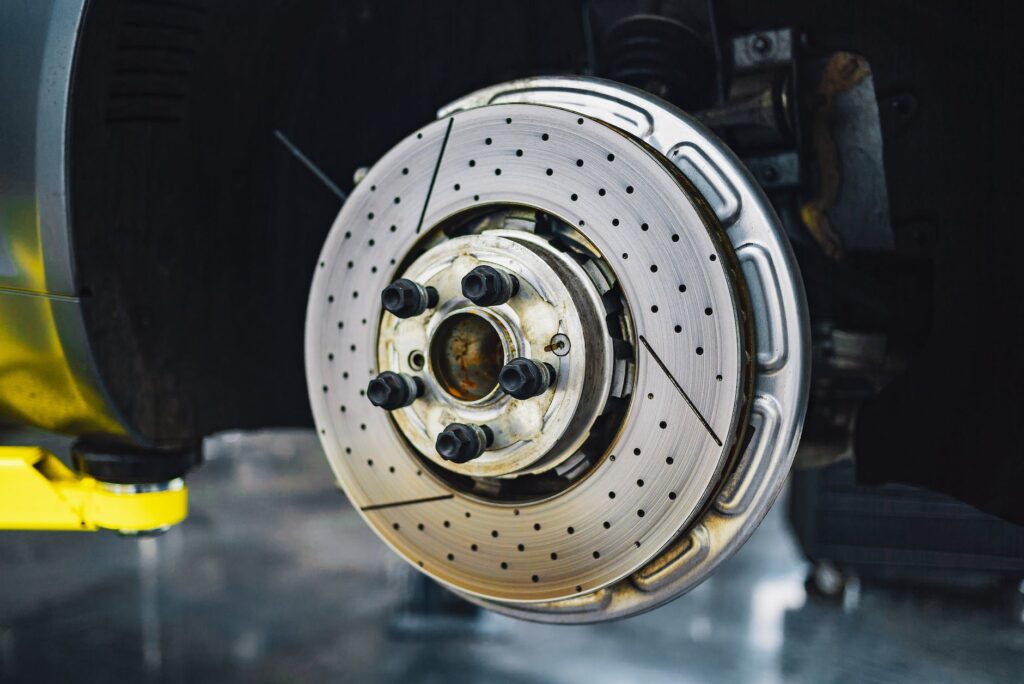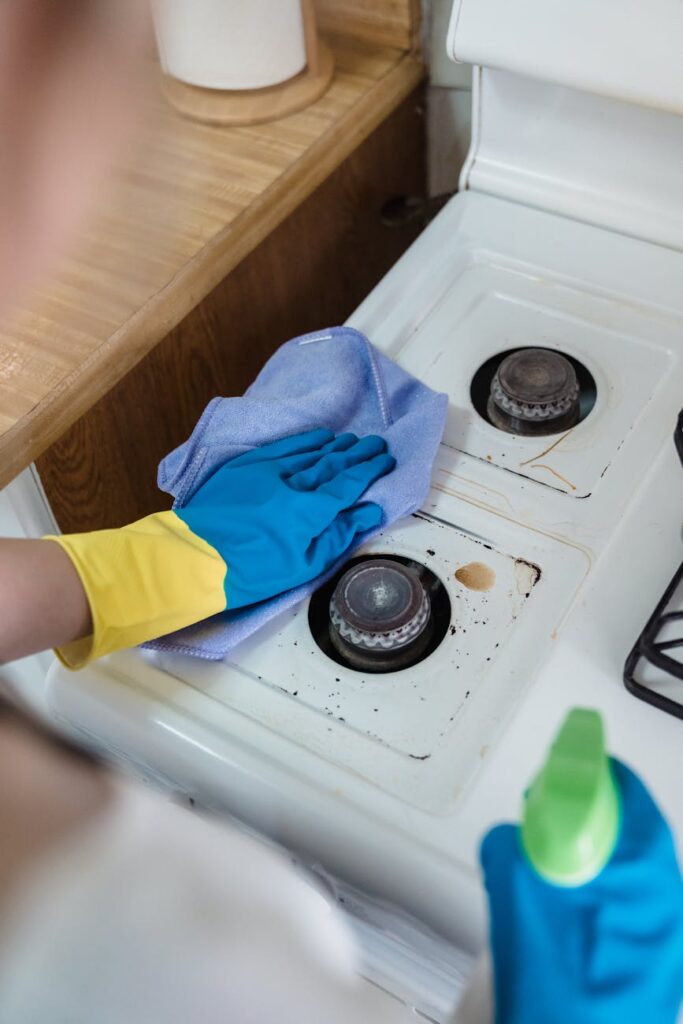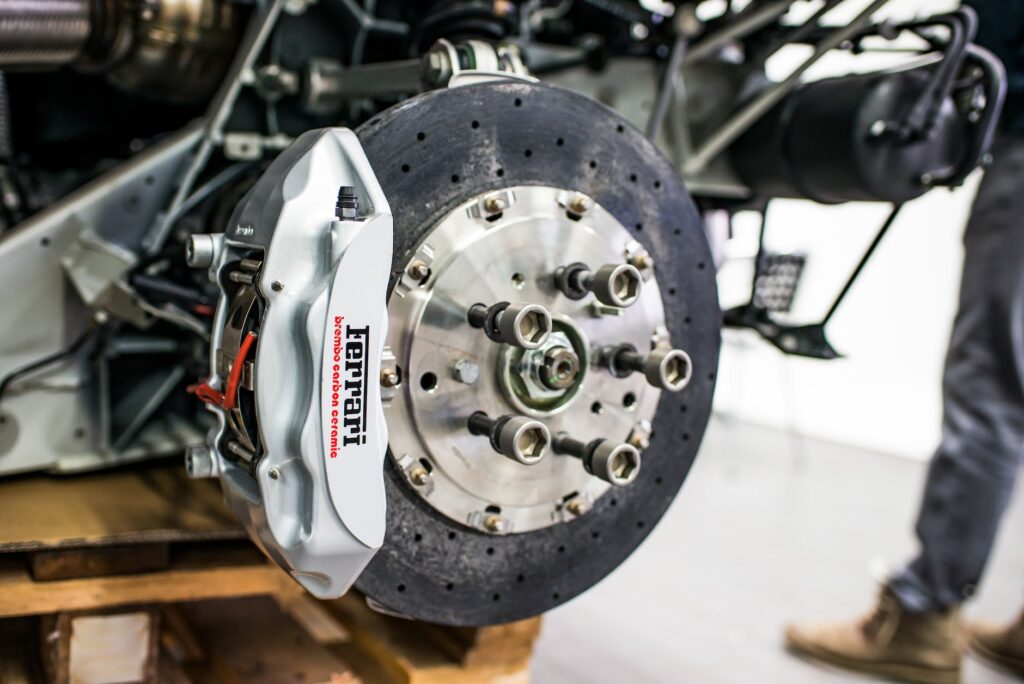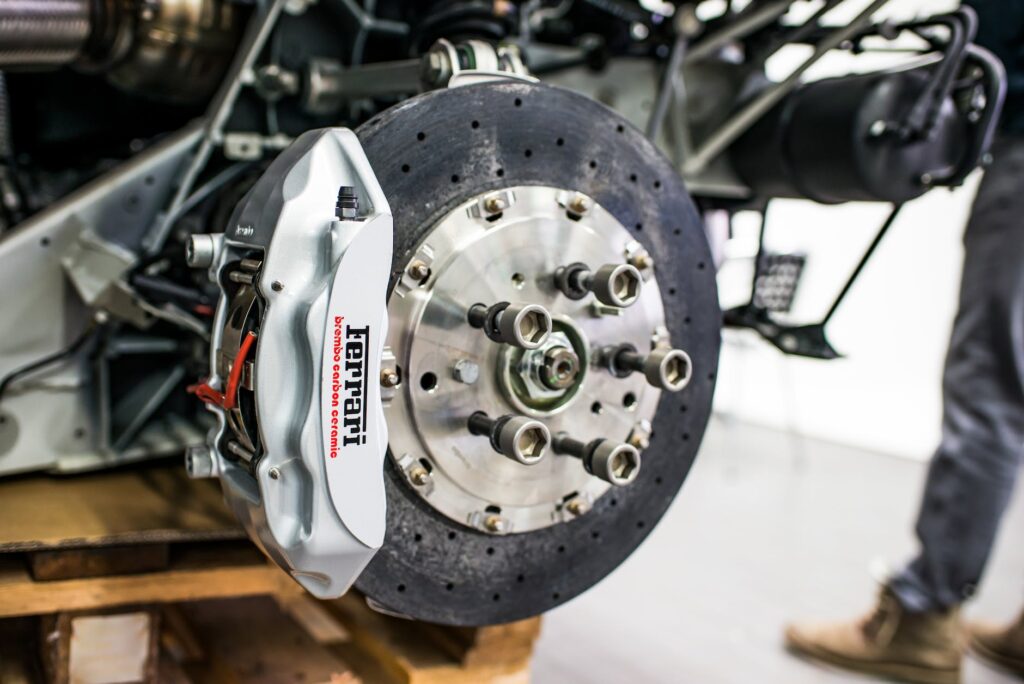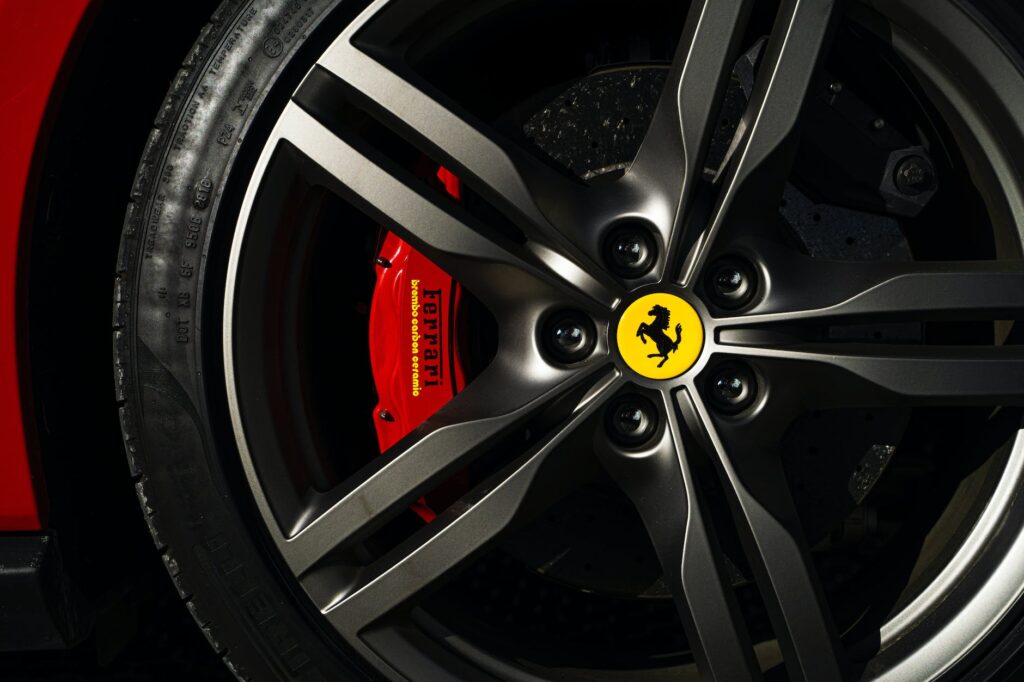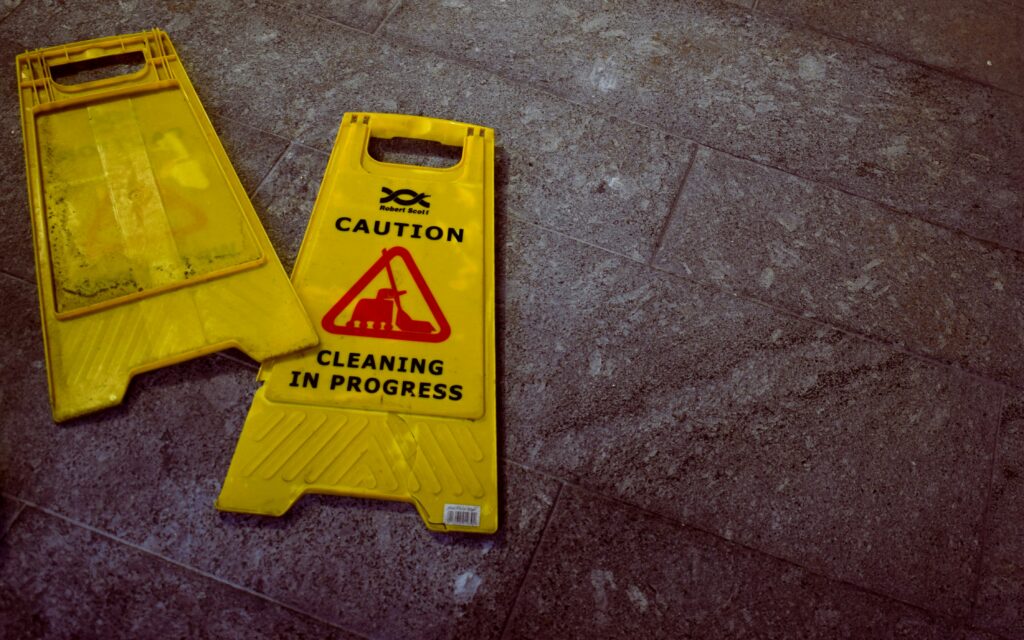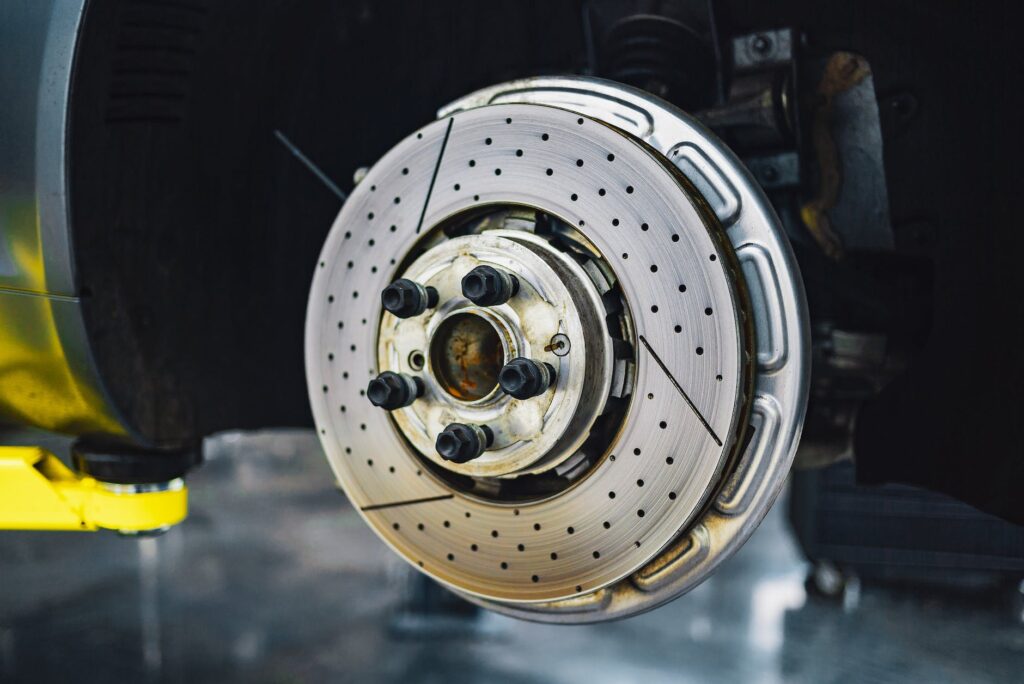Contents
Understanding Squeaky Brakes
Squeaky brakes can be a common and frustrating issue for vehicle owners. Understanding the causes behind this problem is crucial in finding the right solution. Let’s explore what causes squeaky brakes and the common factors that contribute to brake squeaking.
What Causes Squeaky Brakes?
Several factors can contribute to the development of squeaky brakes. One common cause is worn brake pads, especially in older vehicles. The squeaking noise arises from exposed metal pieces within the brake pad, indicating the need for replacement (Freedom General). Another cause of squeaky brakes is rusted brake rotors. Rust or debris on the rotors can lead to squeaking, but a mechanic can often resolve this issue by filing off the rust with a special tool, preventing the need for rotor replacement. It’s important to address rust in a timely manner, as ignoring it can lead to more severe brake damage.
Improper lubrication of the brakes can also result in squeaking. Lack of lubrication at the contact points between the brake and wheel can cause friction and noise. Applying grease to these points after removing the brake pads is a simple DIY task that can help ensure smooth brake operation. Additionally, certain driving habits, such as sudden and hard braking, can contribute to squeaky brakes. Changing driving habits to include longer stopping distances and maintaining more space between vehicles can help maintain brake longevity and silence.
Common Factors Contributing to Brake Squeaking
Besides worn brake pads and rusted brake rotors, there are other factors that can contribute to brake squeaking. Brake pads naturally wear out due to extreme pressure, friction, and vibration. Some manufacturers install soft metal pieces in the brake pads to warn drivers when they are wearing out by producing a squeaking noise. If the brake pads are thinning, it is advisable to replace them following specific steps to eliminate the squeaking (J.D. Power).
Outside exposure overnight can also cause brake squeaking. Accumulated dust or dew moisture on the brakes can result in a slight amount of surface rust on the rotors, leading to squeaky or squealing brakes when first used. However, the sound should dissipate after a short period once the vehicle is driven a few times.
Improper lubrication of brake caliper hardware and slides is another common factor contributing to brake squeaking. When the brake calipers do not move and apply the pads to the rotors properly due to lack of lubrication, squeaking can occur. This issue is often seen in poor quality brake systems or those installed incorrectly (AAMCO Lee’s Summit MO).
In some cases, if brake pads have become overly worn or were damaged prematurely, it may lead to damaged brake rotors due to metal-to-metal contact between the worn brake pads and rotors. This can result in squeaking accompanied by vibrations, which may worsen into scraping and grinding noises, potentially causing brake failure. It is crucial to have a qualified technician address the issue in such cases (AAMCO Lee’s Summit MO).
Additionally, newer brake materials, particularly those made with aggressive metal compositions, can produce additional noise like squealing and squeaking. If newer brakes are causing such noises without other symptoms, consulting with a service provider about alternative products like ceramic brake pads, which are quieter and do not produce messy dust, can be beneficial (AAMCO Lee’s Summit MO).
By understanding the causes and common factors contributing to squeaky brakes, you can take appropriate actions to address the issue. Whether it’s replacing worn brake pads, addressing rusted brake rotors, lubricating brake components, or adjusting your driving habits, a proactive approach to brake maintenance can help ensure a quieter and safer driving experience.
DIY Solutions for Squeaky Brakes
If you’re experiencing squeaky brakes, there are a few DIY solutions you can try before seeking professional help. These solutions involve lubricating brake components and implementing proper brake maintenance techniques.
Lubricating Brake Components
Lubricating brake components is crucial to ensure noise-free braking and proper system operation. When applying lubricant, it’s important to focus on the moving or sliding parts of the brake system, such as caliper bushings, slide pins, abutment clips, and pad mounting tabs. However, it’s essential to avoid excessive lubricant that could interfere with the brakes’ functionality (PowerStop).
For disc brakes, lubrication should be applied to various points in the braking system where components move or slide, while avoiding the friction surface of the brake lining. On the other hand, for drum brakes, lubrication is needed for metal-to-metal contact points, such as where the shoes slide. However, it’s crucial to avoid lubricating areas that could prevent the brakes from functioning effectively (PowerStop).
When it comes to hydraulic components in wheel cylinders and calipers, silicone-based brake lube should be used. This type of lubricant allows for smooth movement of seals and helps prevent corrosion. However, it’s important to avoid over-lubricating and to never apply dry film lubricant where it may come into contact with rubber or plastic seals.
Regularly applying brake lubricant, typically on an annual basis, can provide peace of mind by ensuring optimal performance, preventing noise issues, and extending the life of your vehicle’s braking system. Proper lubrication helps prevent premature brake failure due to unwanted friction and component wear.
Proper Brake Maintenance Techniques
In addition to lubrication, proper brake maintenance techniques can help prevent and address squeaky brakes. Here are a few key practices to consider:
Regular Inspection: Conduct routine visual inspections of your brake components. Look for any signs of wear, damage, or uneven pad wear. If you notice any issues, consult a professional for further evaluation (NuBrakes).
Driving Habits: Avoid aggressive driving habits that can put excessive strain on your brakes. Smooth and gradual braking helps minimize wear and tear on the brake system, reducing the likelihood of squeaks.
Avoiding Water Exposure: Try to avoid driving through deep water or prolonged exposure to water, as this can lead to moisture buildup in the braking system, potentially causing squeaks (NuBrakes).
Cleaning Brake Components: Regularly clean your brake components to remove built-up dirt, debris, and brake dust. Use a brake cleaner or appropriate cleaning solution, following the manufacturer’s instructions. However, ensure that you do not spray any cleaner directly onto rubber components or the painted surface of your vehicle, as it may cause damage.
By lubricating brake components and implementing proper brake maintenance techniques, you can address squeaky brakes and maintain optimal braking performance. However, if the squeaking persists or you’re unsure about the cause of the noise, it’s recommended to consult a professional for a thorough brake inspection and necessary repairs.
Professional Solutions for Squeaky Brakes
When dealing with persistent brake squealing, it’s important to know when to seek professional help. While DIY solutions can often address minor issues, there are cases where professional intervention becomes necessary to ensure optimal brake performance and safety. Let’s explore the instances when it’s advisable to consult a professional and the brake inspection and repair services they can provide.
When to Seek Professional Help
Loud and Persistent Squeaking: If you’ve attempted DIY solutions and the squeaking sound persists, it’s advisable to consult a mechanic for a thorough inspection. According to NuBrakes, a lack of lubrication between drum brake components can lead to persistent squeaking, indicating the need for professional assessment and potential repairs.
Worn Brake Pads: Brake pads are designed with a metal indicator that emits a high-pitched squeal when they approach their minimum thickness. If the squeaking continues even after attempting solutions like lubrication, it’s essential to replace the worn brake pads to avoid additional damage. Continued use of worn brake pads can potentially damage the brake rotors as well, requiring more extensive repairs. Seek professional assistance to address this issue and ensure proper brake functioning (NuBrakes).
Damaged Brake Rotors: If worn brake pads are not replaced promptly, they can cause damage to the brake rotors due to metal-to-metal contact. This can result in squeaking accompanied by vibrations, and in severe cases, scraping and grinding noises. If you experience these symptoms, it’s crucial to consult a qualified technician for inspection and necessary repairs. Ignoring this issue can lead to brake failure and compromise your safety (AAMCO Lee’s Summit MO).
Special Brake Material: Some modern brake materials, particularly those made with aggressive metal compositions, may produce additional noise such as squealing and squeaking. If you’ve recently had your brakes replaced and are experiencing such noises without any other symptoms, it’s recommended to consult a service provider. They can offer alternative products like ceramic brake pads, which are quieter and produce less dust compared to traditional brake materials.
Brake Inspection and Repair Services
When seeking professional help for squeaky brakes, qualified mechanics can provide a range of inspection and repair services to address the underlying causes of the noise. These services may include:
Comprehensive Brake Inspection: A professional mechanic will conduct a thorough inspection of your brake system, including the brake pads, rotors, calipers, and other components. They will assess the condition of the parts, identify any signs of damage or wear, and determine the cause of the squeaking.
Brake Pad Replacement: If your brake pads are worn beyond usable limits, a mechanic will recommend and perform brake pad replacement. This involves removing the old brake pads and installing new ones that are compatible with your vehicle’s specifications.
Brake Rotor Resurfacing or Replacement: In cases where the brake rotors have been damaged due to prolonged use of worn brake pads, a mechanic may recommend resurfacing or replacing the rotors. Resurfacing involves removing a thin layer of material from the rotor surface to restore its smoothness and remove any uneven wear. If the damage is extensive, rotor replacement may be necessary.
Brake System Lubrication: Professional mechanics have access to specialized brake lubricants that can effectively reduce squeaking by providing proper lubrication to the brake components. They will apply the appropriate lubricant to the designated areas, ensuring smooth and quiet operation.
By seeking professional help, you can address more complex brake issues and ensure that your vehicle’s braking system is functioning optimally. Remember, timely intervention is crucial to prevent further damage and maintain your safety on the road.
Choosing the Best Spray for Squeaky Brakes
When it comes to addressing squeaky brakes, choosing the right spray can make a significant difference in reducing noise and improving brake performance. There are various brake lubricants available, each designed to address specific needs and provide optimal results. Let’s take a closer look at the overview of brake lubricants and the different types available for brake systems.
Overview of Brake Lubricants
Brake lubrication plays a crucial role in ensuring safe operation and performance of a vehicle’s braking system. While the braking process relies on friction, lubricants are necessary to prevent components from deteriorating and ensure proper functioning. It’s important to note that lubricants should not be applied to the brake pads or rotors, as this can negatively impact braking performance.
Brake lubricants are specially formulated to withstand the high temperatures and pressures experienced within the braking system. These lubricants provide a protective barrier between the moving components, reducing friction, and minimizing noise. They also help prevent rust and corrosion, extending the lifespan of brake parts.
Types of Lubricants for Brake Systems
There are several types of lubricants available for brake systems, each offering unique properties and benefits. Here are some common types of lubricants used for brake systems:
Silicone-based lubricants: Silicone-based sprays are commonly used for brake lubrication. They provide excellent heat resistance and long-lasting lubrication. Silicone lubricants are compatible with rubber components and do not cause swelling or damage. These lubricants are ideal for caliper pins, slide pins, and other moving parts.
Graphite lubricants: Graphite lubricants are dry lubricants that are effective in reducing brake noise. They create a thin layer of lubrication that helps to dampen vibrations and minimize squeaking. Graphite lubricants are typically applied to the back of the brake pads or to the contact points between the pads and caliper brackets.
Moly-based lubricants: Molybdenum disulfide (moly) lubricants are commonly used for high-performance applications. These lubricants have excellent load-bearing properties and can withstand extreme temperatures. They are particularly beneficial for areas with high pressure and sliding friction, such as caliper slide pins.
It’s important to follow the manufacturer’s instructions when applying brake lubricants. The lubricant should be applied sparingly, focusing on the appropriate components. Excessive lubrication can lead to brake failure, so it’s crucial to use the lubricant judiciously.
Choosing the right spray for squeaky brakes depends on various factors, including the specific needs of your vehicle and the type of brake system. It’s recommended to consult with a professional or refer to the vehicle’s owner manual for specific lubrication recommendations.
In the next section, we will provide a step-by-step guide on how to effectively use brake sprays to address squeaky brakes. Additionally, we will share tips for preventing brake noise and maintaining optimal brake performance.
How to Use Brake Sprays Effectively
To effectively address brake squeaking, understanding the correct application of brake sprays is essential. Brake sprays, such as WD-40 and silicone-based lubricants, can help reduce squeaking noises by lubricating the caliper pins and hardware. However, it’s important to note that these sprays should not be applied to the brake pads or rotors to avoid compromising braking performance (Quora).
Step-by-Step Guide to Applying Brake Spray
When using brake spray to address brake squeaking, it’s crucial to follow the proper application techniques. Here is a step-by-step guide to help you apply brake spray effectively:
Prepare the area: Ensure that the vehicle is parked on a level surface and the engine is turned off. If working on disc brakes, remove the wheels to access the brake components. For drum brakes, remove the drum to access the brake shoes.
Clean the components: Before applying the brake spray, clean the brake components using a suitable brake cleaner or soapy water. This helps remove any debris or contaminants that might affect the effectiveness of the spray.
Apply the brake spray: Shake the brake spray canister well to mix the contents. Hold the canister approximately 6-8 inches away from the target area and spray a thin, even coat of the lubricant onto the moving or sliding parts of the brake system. Focus on areas such as caliper bushings, slide pins, abutment clips, and pad mounting tabs. Avoid spraying the friction surface of the brake pads or rotors.
Wipe off excess spray: After applying the brake spray, use a clean cloth or paper towel to wipe off any excess lubricant. This helps prevent the accumulation of dirt or dust on the brake components.
Reassemble and test: Once the excess spray is wiped off, reassemble the brake components and secure them properly. Ensure that all bolts and fasteners are tightened to the manufacturer’s specifications. Before driving, perform a test by applying the brakes gently to ensure smooth and noise-free operation.
Tips for Preventing Brake Noise
In addition to using brake spray, there are several preventive measures you can take to minimize brake noise. Consider the following tips:
Regular maintenance: Perform regular brake maintenance, including inspections and cleaning of brake components. This helps identify and address any issues promptly, reducing the chances of brake noise.
Driving habits: Avoid aggressive braking and sudden stops, as these actions can put additional stress on the brake system. Gradual braking and anticipating stops can help reduce wear and noise.
Lubrication: Lubricate hydraulic components in wheel cylinders and calipers with silicone-based brake lube. This allows for smooth movement of seals and helps prevent corrosion. Ensure not to over-lubricate and avoid applying dry film lubricant where it may contact rubber or plastic seals.
By following these steps and incorporating preventive measures, you can effectively use brake sprays to address brake squeaking and maintain optimal brake performance. Remember to always consult your vehicle’s manufacturer guidelines and seek professional assistance if needed.
Additional Tips for Brake Maintenance
Ensuring the optimal performance and longevity of your vehicle’s brakes goes beyond finding the best spray for squeaky brakes. By adopting certain driving habits and regularly inspecting your brakes, you can enhance their performance and address any potential issues before they escalate.
Driving Habits for Optimal Brake Performance
One of the most effective ways to maintain the performance of your brakes is by adjusting your driving habits. By following these tips, you can minimize wear and tear on your brakes and reduce the likelihood of squeaking:
Avoid Sudden and Hard Braking: Slamming on your brakes frequently can accelerate wear and tear, leading to squeaky brakes. Instead, try to anticipate traffic conditions and maintain a safe following distance to allow for gradual and smooth braking.
Practice Defensive Driving: Defensive driving techniques, such as maintaining a longer stopping distance and keeping more space between vehicles, can help reduce the strain on your brakes. By giving yourself extra time to react and slow down, you can minimize the need for sudden braking, which can contribute to brake noise.
Minimize Excessive Weight: Carrying unnecessary weight in your vehicle can put additional strain on your brakes. Regularly remove any unnecessary items from your car to lighten the load and reduce the stress on your braking system.
Importance of Regular Brake Inspections
Regular brake inspections are vital for identifying any potential issues and ensuring the proper functioning of your braking system. Here are some key reasons why regular brake inspections are essential:
Detect Worn Brake Pads: Over time, brake pads naturally wear out due to extreme pressure, friction, and vibration. Manufacturers often install soft metal pieces in the brake pads to warn drivers when the brakes are wearing out by producing a squeaking noise. If you notice persistent squeaking or grinding, it is advisable to have your brake pads inspected and replaced if necessary. Consult a professional mechanic for guidance.
Address Loose Brake Components: Loose parts within the brake system can also contribute to brake squeaking. If you notice any components of the brake system that appear to be loose, it is important to thoroughly examine your vehicle and secure any loose bolts or screws. If you are unsure about the condition of your brake system, it is recommended to have your vehicle inspected by a mechanic to ensure all parts are properly fitted.
Ensure Proper Lubrication: Brake lubrication is crucial for the safe operation and performance of your vehicle’s braking system. Although the braking system relies on friction during the stopping process, lubricants are necessary to prevent components from deteriorating and ensure that the brakes function properly. Different parts of the brake system require specific types of lubricants. Consult your vehicle’s manual or seek professional advice to determine the appropriate lubrication for your brakes.
By adopting safe driving habits and regularly inspecting your brakes, you can maintain their optimal performance and address any potential issues in a timely manner. Remember that while squeaky brakes can be temporarily addressed with sprays and lubricants, it is important to address the root cause of the noise and seek professional assistance when necessary.

